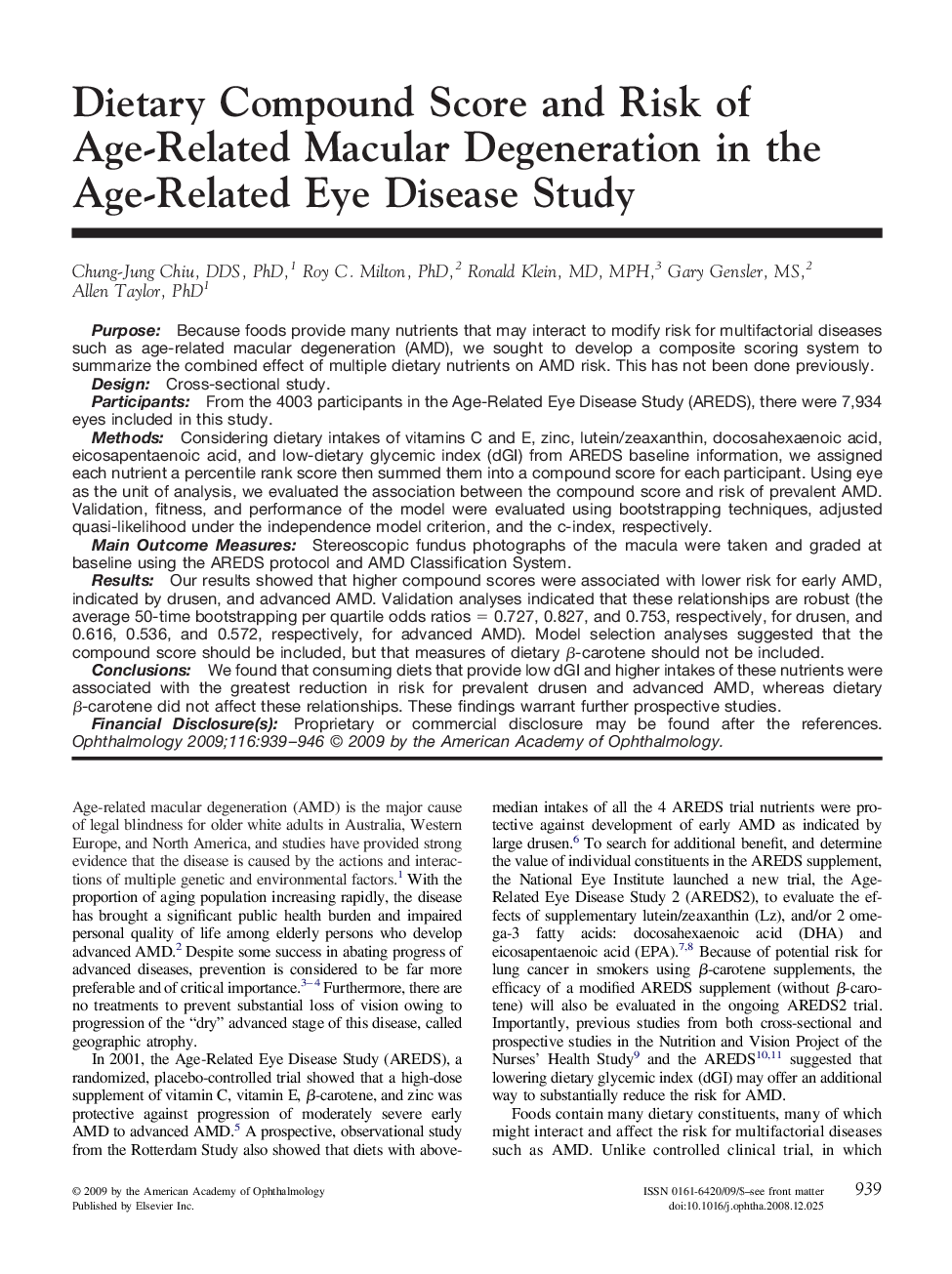| کد مقاله | کد نشریه | سال انتشار | مقاله انگلیسی | نسخه تمام متن |
|---|---|---|---|---|
| 4028851 | 1262489 | 2009 | 8 صفحه PDF | دانلود رایگان |

PurposeBecause foods provide many nutrients that may interact to modify risk for multifactorial diseases such as age-related macular degeneration (AMD), we sought to develop a composite scoring system to summarize the combined effect of multiple dietary nutrients on AMD risk. This has not been done previously.DesignCross-sectional study.ParticipantsFrom the 4003 participants in the Age-Related Eye Disease Study (AREDS), there were 7,934 eyes included in this study.MethodsConsidering dietary intakes of vitamins C and E, zinc, lutein/zeaxanthin, docosahexaenoic acid, eicosapentaenoic acid, and low-dietary glycemic index (dGI) from AREDS baseline information, we assigned each nutrient a percentile rank score then summed them into a compound score for each participant. Using eye as the unit of analysis, we evaluated the association between the compound score and risk of prevalent AMD. Validation, fitness, and performance of the model were evaluated using bootstrapping techniques, adjusted quasi-likelihood under the independence model criterion, and the c-index, respectively.Main Outcome MeasuresStereoscopic fundus photographs of the macula were taken and graded at baseline using the AREDS protocol and AMD Classification System.ResultsOur results showed that higher compound scores were associated with lower risk for early AMD, indicated by drusen, and advanced AMD. Validation analyses indicated that these relationships are robust (the average 50-time bootstrapping per quartile odds ratios = 0.727, 0.827, and 0.753, respectively, for drusen, and 0.616, 0.536, and 0.572, respectively, for advanced AMD). Model selection analyses suggested that the compound score should be included, but that measures of dietary β-carotene should not be included.ConclusionsWe found that consuming diets that provide low dGI and higher intakes of these nutrients were associated with the greatest reduction in risk for prevalent drusen and advanced AMD, whereas dietary β-carotene did not affect these relationships. These findings warrant further prospective studies.Financial Disclosure(s)Proprietary or commercial disclosure may be found after the references.
Journal: Ophthalmology - Volume 116, Issue 5, May 2009, Pages 939–946